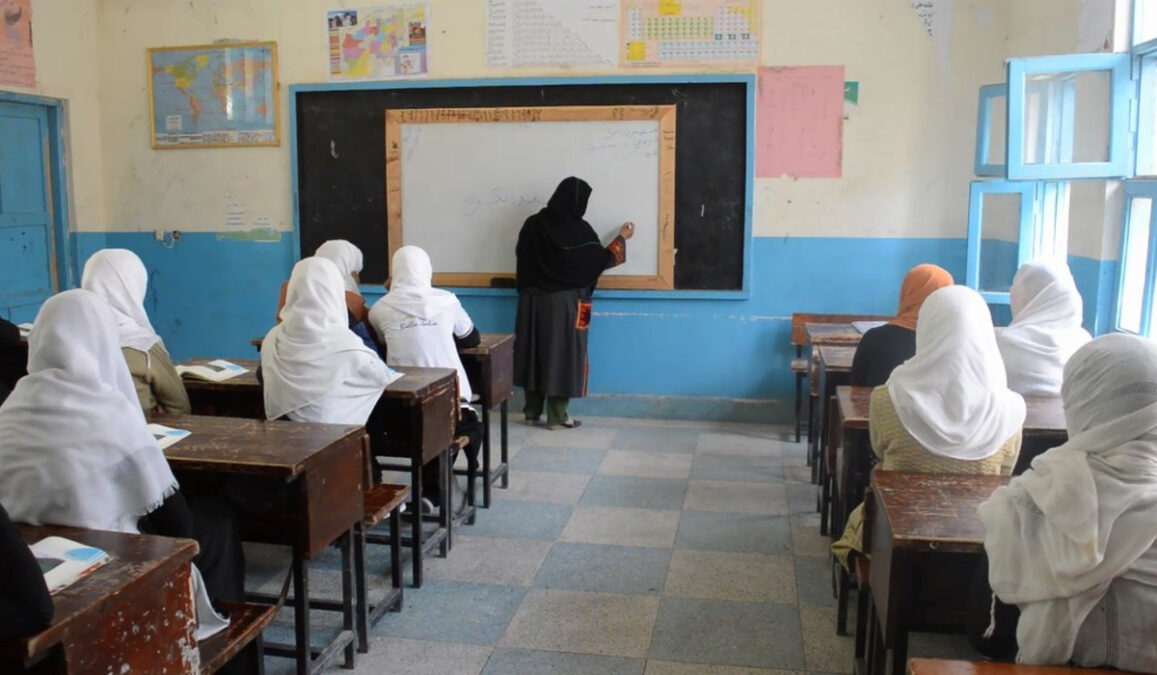The suspension of salaries for female teachers by the Taliban has sparked grave concerns and frustration among educators.
Several female teachers reported that the Taliban has initiated a process of “separating salary scales,” with plans to reduce their monthly salaries to 5,000 Afghanis. The teachers expressed that this drastic reduction would force them into dire economic situations, potentially leading them to leave their jobs.
Nearly a month ago, Taliban leader Hibatullah Akhundzada issued a decree instructing Taliban-run institutions to cut the salaries of female government employees to 5,000 Afghanis ($70). Meanwhile, a payroll report from a female employee indicated that this month’s salaries have been suspended, without further explanation.
In interviews with Amu, several female teachers, who wished to remain unnamed, confirmed the matter but refrained from sharing additional details about their payroll reports. It remains unclear whether this month’s salary for female teachers will be issued at the previous scale or reduced to 5,000 Afghanis. In contrast, payroll reports for male teachers showed no suspension, and their salaries were issued as usual.
The teachers stressed that 5,000 Afghanis would not even cover their transportation expenses, leaving them in a difficult financial position. “I am the breadwinner of my family. How can I cover any expenses with just 5,000 Afghanis? Family expenses, children’s education, and other necessary expenditures—what should we prioritize? We perform the same duties as male teachers, so why are we paid less?” said Neelab, a female teacher.
“Our salaries have been reduced to 5,000 Afghanis. What can we do with this amount? Pay the rent? Provide for family expenses? I have a family of seven. What can I do with 5,000 Afghanis?” questioned Zarghoona, a teacher from Kandahar.
Mahbooba, who has been teaching for around 18 years, called the Taliban leader’s decision “cruel and blatant gender discrimination.” She argued that the decision would severely impact teachers who are the primary breadwinners for their families. “The 5,000 Afghanis allocated by the Taliban’s leader for women is insufficient. Everyone is aware that the prices of all food items are very high,” she said. “Many do not own their homes and live in rented houses. Should they pay rent with 5,000 Afghanis, pay for expenses, or cover their children’s school fees? We are facing very serious difficulties.”
In response to the Taliban’s severe restrictions on women’s rights, this recent decree to reduce the salaries of female employees has sparked widespread reactions across the country. Nearly a week ago, many female doctors protested the decision with a one-day work strike.
Since the Taliban came to power, many female employees in government departments have been forced to stay at home. However, women continue to work in education, health, and civil services. The Taliban claimed that 352,000 women are currently employed in these sectors, with 200,000 working in education alone.





